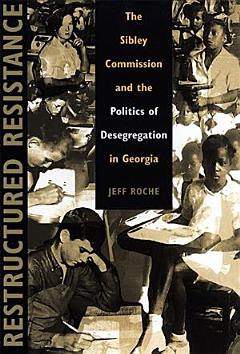Restructured Resistance uses newly opened private papers, public records, newspaper reports, and oral history interviews to examine how the desegregation of public schools in Georgia reflected the evolution of southern society, economics, and politics. In the midst of crisis over segregation as a symbol of southern distinctiveness, the state legislature accepted the inevitable, adopted the Sibley Commission's proposals, and created a deliberate and more utilitarian form of defiance--a restructured resistance--rooted in contemporary practicality and corporate pragmatism.
The Sibley Commission and the Politics of Desegregation in Georgia
By:
Jeff Roche

